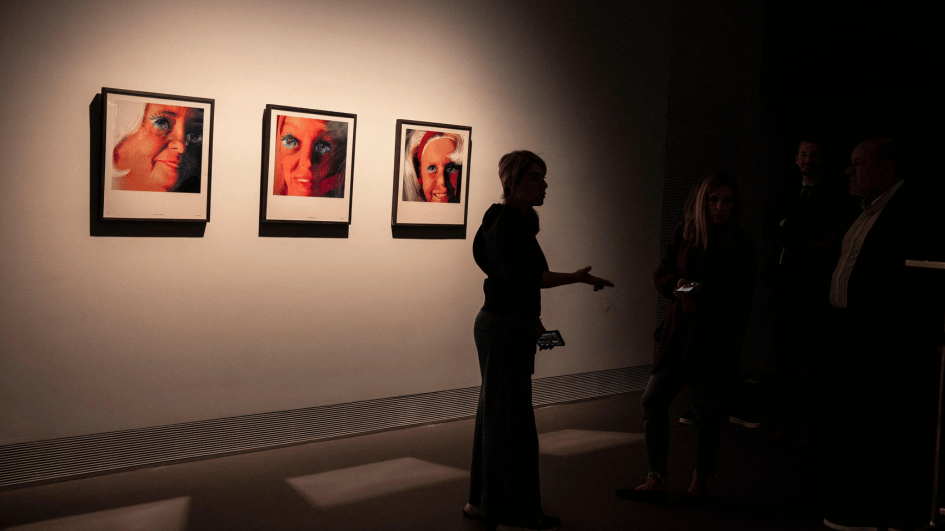
A Greek art museum this week handed over its halls exclusively to women artists, in a pioneering exhibition titled "What if women ruled the world?"
"For 10 months, the entire museum will be in the hands of women artists," Katerina Gregos, artistic director of the National Museum of Contemporary Art in Athens (EMST), told AFP.
The museum's permanent exhibitions have been reorganized to highlight the work of 25 women artists, with another 15 temporary displays to follow.
Among the painters, sculptors, photographers and others are Syrian-American contemporary artist Diana Al-Hadid, French visual artist Annette Messager, Iranian-American painter Tala Madani, Greek-Belgian contemporary artist Danai Anesiadou and English visual artist Cornelia Parker.
Until now, just 37 percent of artists represented in the museum's permanent exhibition were women, Gregos said.
The selected works address themes including stereotypes of female beauty, violence against women, inequality, consumerism, and poverty disproportionately affecting women.
"Women artists are still under-represented in most aspects of the art world," said Gregos, who took over the post of artistic director in 2021.
"We wanted to reverse the trend and see what a museum would look like if, instead of a few token pieces, works by women artists made up the majority," she said.
'Systematically marginalized'
Among the 18 top museums in the United States, 87 percent of works were created by men, according to the Washington-based National Museum of Women in the Arts.
Similar statistics are not available for Greece.
Several artists in the exhibition will be Greek, with Gregos stressing that women often have difficulty gaining recognition in a traditionally patriarchal country that has long languished outside the international art market mainstream.
"Especially in a country like Greece, where there has never been an organized feminist movement in the visual arts and where women artists have been systematically marginalized for decades, this initiative is an important message and, compensation for a major inequality,” she said.
At the beginning of the permanent exhibition, a frieze traces the progress of women's rights in Greece.
Women became eligible to vote only in 1953, and marriage dowries were officially abolished only in 1983.
"Most wars and destruction are orchestrated mainly by men," Gregos said.
"If women were in charge, perhaps there would be less violence, more compromise, more fairness. It wouldn't be a perfect world but it would certainly be different."
Housed in a 19th-century brewery complex, the museum's full galleries opened in 2021.